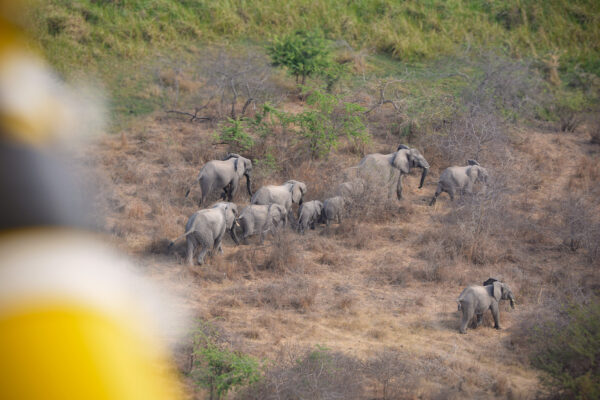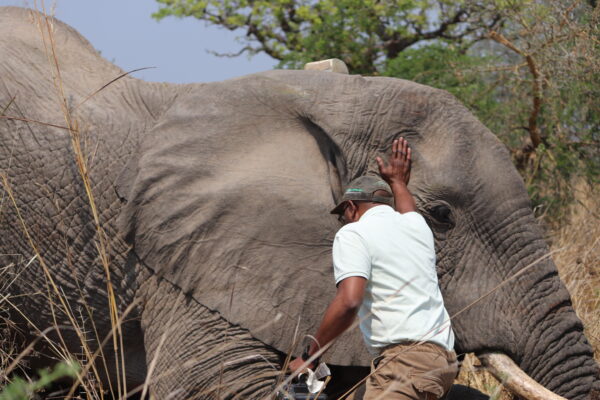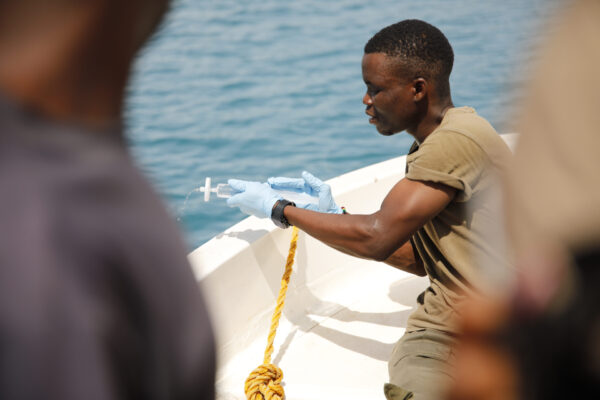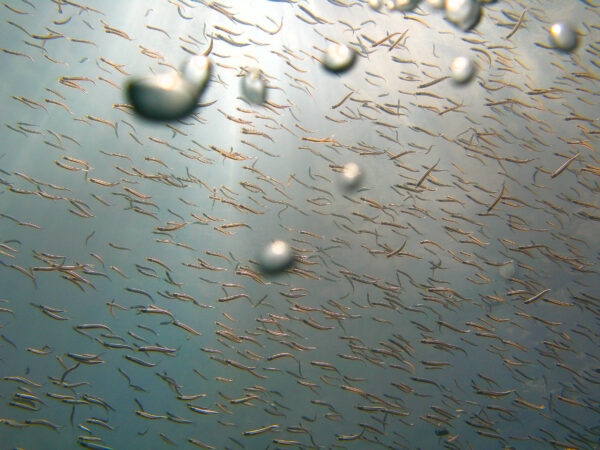An exciting collaboration of JRS grantee Frankfurt Zoological Society with the Nsumbu-Tanganyika Conservation Programme (NTCP) is breaking new ground in critical data collection within a unique wetland ecosystem. The Nsumbu National Park is located in a remote area of NE Zambia and is characterized by extensive wetlands, endangered Sumbu-Itigi forests, and is home to the last remnants of a distinct elephant population that once roamed throughout the region. Significantly, Nsumbu is the largest and best protected portion of Lake Tanganyika. The NTCP’s Ecological Monitoring Unit (EMU) is collecting critical data through animal collaring and tracking operations and the use of cutting-edge environmental DNA (eDNA) data collection.
Each EMU member recently had the opportunity to take to the skies for the first time, developing their tracking skills from a helicopter and a plane. The team located and collared 7 animals: two elephants, one buffalo, two sable and two eland, which will provide valuable information on animal movements for better conservation management planning and improved human-wildlife coexistence strategies. The plane is fitted with VHF antennae which supports ongoing aerial tracking of animals collared with VHF transmitters.


From the skies to underwater research, the EMU has been trained on the collection of eDNA, collecting and filtering freshwater from Nsumbu’s remote inland waterways and rivers in order to capture minute pieces of DNA from species that passed through the water in the previous few days. 192 water samples were collected over several months during extended field patrols. Data collection teams walked long distances, crossed rivers and camped out to reach remote areas without road access. Changes in aquatic biodiversity will be measured against this comprehensive baseline, enabling an informed and adaptive management in the landscape.


Read more about the Frankfurt Zoological Society collaboration with the Nsumbu-Tanganyika Conservation Programme’s (NTCP) here.

